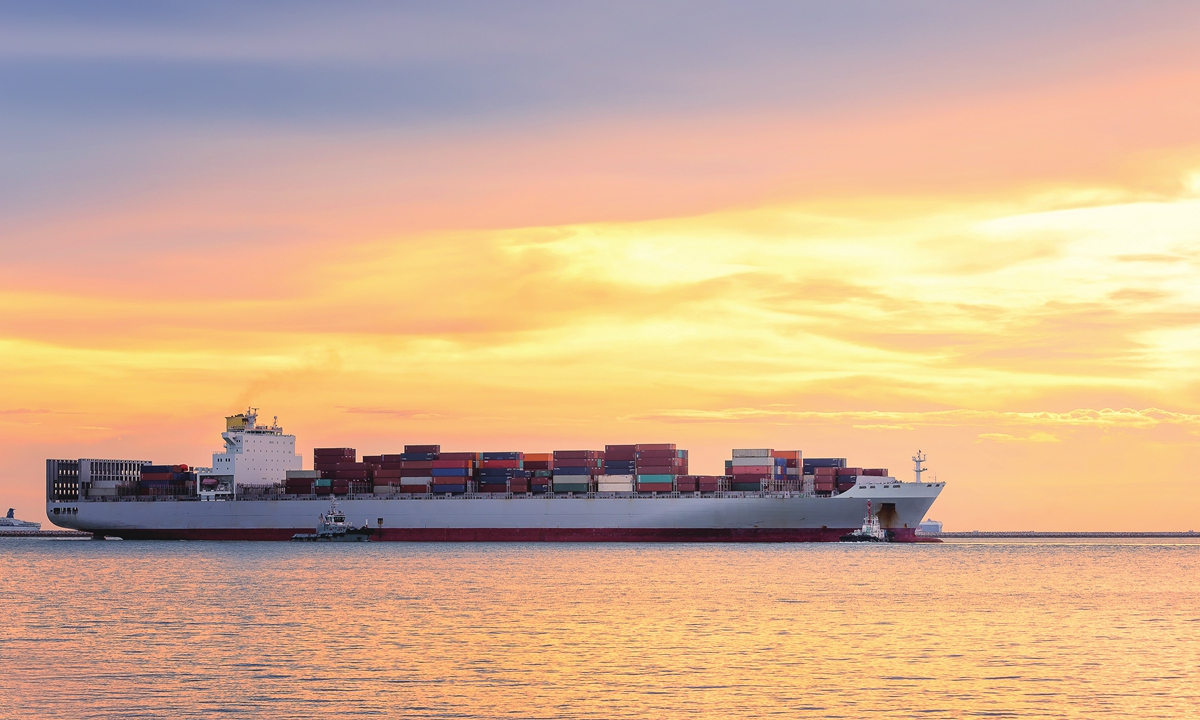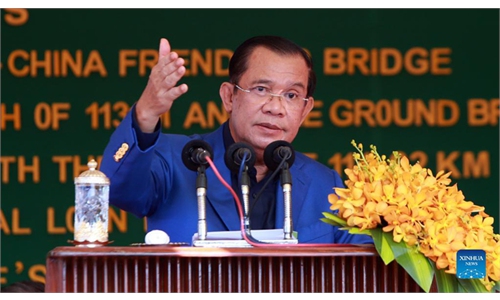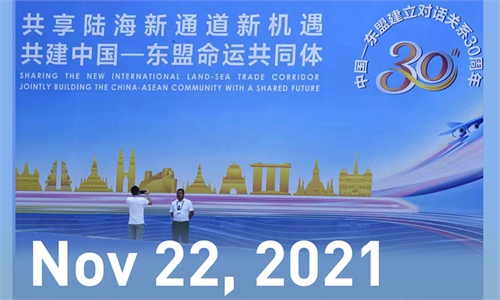US media shift responsibility for global supply chain disruption onto China by pointing to baseless vessel data speculation: analysts
US media pushing baseless speculation to shift responsibility

A cargo ship on the Mediterranean Sea Photo: VCG
US media is trying to shift US' responsibility for thwarting the global supply chain's smooth flow onto China by hinting that the Chinese government is preventing upload of domestic ships' tracking data in Chinese waters, a veteran Chinese shipping expert said, refuting a CNN report on the phenomenon of Chinese ships going "missing" from global industry tracking systems.
He stressed that China has never tried to thwart sending its ships' Automatic Identification System (AIS) signals over so-called security concerns, and there is no point in doing so from a technical perspective.
The CNN report, which was published on Wednesday US time, cited figures from global shipping data provider VesselsValue as saying that the number of Chinese vessels sending AIS signals has plunged by nearly 90 percent in the past three weeks.
The installation of AIS system allows ships to send information to stations based along coastlines using high-frequency radio, which will help them get support and aid in accidents or abnormal circumstances.
The claimed drop in Chinese ships' AIS signals tracked by industry systems is attributed by the CNN report to China's recent move to enact legislation governing data privacy, citing an industry analyst.
According to the analyst, Chinese data providers might be withholding information "as a precaution," as the newly enacted China's Personal Information Protection Law requires companies to get consent before they can transfer personal data to overseas destinations. The law itself does not mention shipping data.
Wu Minghua, a veteran Chinese shipping analyst, said that such speculation is illogical, as the AIS signals only record the vessels' statistics like speed and location, but not confidential information like cargo manifests and personal information on the crew.
"There's nothing worth concealing about the AIS information, not to mention that ships can be tracked via other means like port customs and satellites," Wu told the Global Times, stressing that China has never evaded sending ship AIS signals to overseas systems.
According to the analysts, speculation over China's AIS transmitting problems is an excuse used by certain countries to shift their responsibility for global supply chainmessonto China.
The CNN report said that China's missing shipping traffic has "created yet another headache" for the global supply chain as the country becomes increasingly isolated from the rest of the world.
Wu said that China has made tremendous contributions to the world's supply chain during the pandemic period, not only by securing production and transportation for overseas markets when many other economies' logistics were cut off, but also by further opening up its markets with new policies, such as allowing international liner operators to transport containers transhipped from Shanghai's Yangshan to the ports of Qingdao, Tianjin and Dalian.
"China is the world's most complete and active supplier at the current time. In fact, the worry we have now is not of China having fewer vessels to operate, but quite the opposite, as too many new ships are being built to meet global supply demands, which we fear might trigger ship overcapacity in the future," Wu told the Global Times.
Wu added that the US, in comparison, is having severe problems with managing its supply chains, as problems like labor shortages and port inefficiency have led to bottlenecks in many US ports and forced many companies to switch to air freight.
A commentary published in the Atlantic in October said that the US seems to be short of "everything" from paper towels to at-home COVID-19 test kits. The article attributed the phenomenon to multiple factors, not only the disruption in East Asia supply chains because of the coronavirus, but also because of local problems like shortages of drivers in the US and transportation price surges.
"What China and other countries' industry workers want the most is that US can come up with an effective plan to increase the efficiency of its ports and resolve the issue of containers backed up [at its ports]ahead of Christmas, instead of blaming other countries for its own faults," Wu said.




